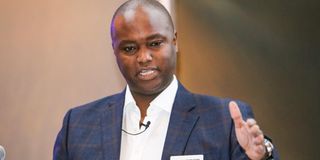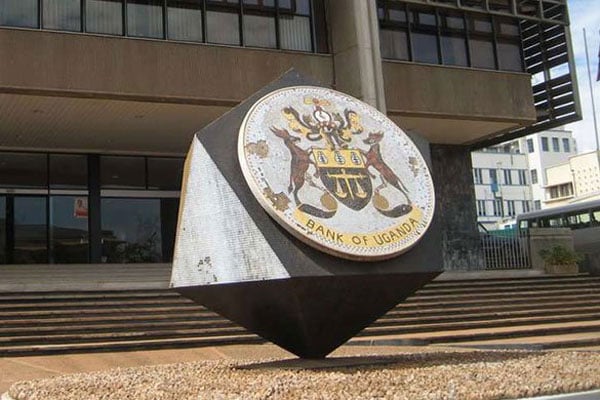Tribute: Governor Mutebile was Uganda’s interstellar navigator

Patrick Mweheire
What you need to know:
- Mutebile earned respect among his peers in Africa and beyond, because of his singular role in drawing the decisive line between Uganda’s checkered economic and political past; and the future, that would manifest later in momentous macroeconomic stability----he was a key architect among a few others to make the key shifts we needed to get back on track.
By Patrick Mweheire
Several days after Professor Emmanuel Tumusiime-Mutebile, the former Governor of the Bank of Uganda was laid to rest, his name still receives regular mention in many conversations; recently, I was asked to share my thoughts about the fallen economist and central banker.
Having spent five years as the leader of Uganda’s largest commercial bank, I was honoured to get to know the man and weigh-in on his policy actions as Governor, from a privileged vantage point.
At any one point, Stanbic Uganda held anywhere between 20 and 30 percent of the government securities in the market; as the largest bank, we were also expected to align and support with the national agenda whereby if the government says infrastructure is key, we had to figure out a way to support that; at one point we had 70 percent market share of balance sheet guarantees supporting all these infrastructure development projects.
We also held a substantial portion of our loan book in agriculture and the manufacturing sector to help spur growth----supporting all those projects using our balance sheet and off-balance sheet resources.
A conduit for CBR enforcement
I recall, when Mutebile introduced the central bank rate (“CBR”), he expected it to be a mechanism to provide direction on where interest rates were heading.
The expectation was that whenever the CBR was reduced, we commercial banks would have to move our interest rates as well and he regarded Stanbic as a major conduit, through which to signal his policies to the rest of the industry.
I am pleased to say that we never let the Governor down; during my time at Stanbic Uganda, we lowered interest rates at least 8 times in tandem with the CBR during my tenor. I know that he appreciated this transparent corporate leadership role we played.
Mutebile earned respect among his peers in Africa and beyond, because of his singular role in drawing the decisive line between Uganda’s checkered economic and political past; and the future, that would manifest later in momentous macroeconomic stability----he was a key architect among a few others to make the key shifts we needed to get back on track.
By the time he jumped into the fray of mending Uganda’s broken economy, the country had lost nearly two decades of any meaningful activity. There was a huge fiscal gap as domestic revenue and export earnings were far below budgetary needs, inflation was rampant, and unrealistic
fixed foreign exchange rate had firmly given root to a devastating parallel market.
You had very low confidence among the business community and essentially empty government coffers amidst huge government aspirations. It took a lot of personal courage and sense of duty for anyone to step into that kind of perfect storm and manage to introduce the macro-economic stability that the country takes for granted today.
This was a significant achievement particularly when you compare Uganda to several African countries that have the intellectual firepower and are far more resourced financially but have failed to achieve that illusive stability.
Besides navigating the political challenges, fiscal shortfalls and the external shocks that would come through, Mutebile also had to supervise the banking sector which was rocked by a number of bank failures. The global financial crisis of 2008, affected the entire global banking sector and saw a lot of liquidity being yanked out of emerging markets, throwing local currencies into a tailspin. Once again, Mutebile through unwavering discipline steadied the ship and managed to navigate us through another storm - keeping the Ugandan economy on track.
Champion of economic liberalization
If we look back to the time when Mutebile made his bold suggestions to liberalize, to let the Ugandan shilling float freely and to privatize public enterprises, those decisions were extremely radical and generally unpopular at the time. Many African governments felt like State-owned enterprises were the crown-jewels of their countries and selling them bordered on treason.
That school of thought is still alive among a section of economists, today. Mutebile firmly believed that to get back on a path to recovery, the country needed to remove the shackles on the fiscal side, free up resources for development, get out of managing fleets of cars for State Operated Enterprises and reduce their bloated budgets.
It is therefore fair to say that the man demonstrated the ability to articulate his vision at the time and was able to enlist the support of the appointing authority---the President, to see through his economic agenda for Uganda, especially considering that he was implementing all this in an environment of divergent views and the right path was not always obvious as it is today, with the benefit of hindsight.
By no chance was it an easy environment to navigate and to get the divergent teams to back him---ultimately, he succeeded through a combination of charm, charisma and sometimes a dose of obstinacy---to get this way.
A master of inflation targeting
We should also give Mutebile credit as a fast mover in terms of understanding that removing all that liquidity out of the financial system was key in managing inflation and bringing investor confidence back. The currency reform in which two zeroes were knocked off was very tough medicine for many to swallow but sometimes the end justifies the means.
The last 20 years have allowed Uganda to be one of the fastest growing countries in sub–Saharan Africa and one of the largest recipients of Foreign Direct Investment (FDI”) in the region. So, he set the country up for a good trajectory and that we must be thankful for.
He got the wheels in motion and set-up a framework to keep everyone on those disciplined guardrails. Inflation targeting was one of his well-known and effective tools and he set his maximum threshold at 5 percent and then managed that like a hawk. If you look at inflation in Uganda today, it is about 3 percent and the lowest in the region.
Over the last three years, the Uganda shilling has hardly moved from 3,500 to the dollar. Such stability only comes with discipline. He put in place a framework and he lived by it. He was also firm around managing the political opinions and demands that occasionally tried to bring indiscipline into his system.
I am happy to be corrected but I don't think there's any other governor, who will be as firm and resolved as Mutebile was over two decades. He was able to demonstrate the negative knock-on effects of bad policies upfront and never minced his words---I know because I have seen him in action in front of high-ranking officials and technocrats, but he was a man of principle.
A proven leader, mentor
I want to also give the late governor credit for having been an effective leader in running a large and complex central bank, where you've got several academicians, specialists, technicians, and all manner of experts----everybody comes in there with a certain specialty and their strong and expert opinion on how things should be done.
From first-hand experience of the complexity of managing multiple disciplines and bringing them all together around delivering common objectives, I know it’s not an easy task. That further demonstrates the kind of enigma he was, to be able to keep all these diverse and deep specialists together and rally them around doing the right thing.
He was also a supporter of local content; in the last ten years or so, there's been a dramatic shift in the number of local CEOs running banks in Uganda; there is still some work to be done but special credit goes to him for pursuing that localization of talent.
He was a big supporter and mentor of many careers at the helm of several financial institutions today; fortunately, both foreign and local shareholders now see the intrinsic logic and benefit of having a CEO, that's a local---you can have real frank discussions with the regulator and other stakeholders as one advantage off a long list of others.
In my case, for instance, there were sensitive issues that I would discuss with him because we had built that trust and he knew that as a local leader, ultimately our interests were aligned, Uganda was home for us all; if things went wild, I was not going to jump on the next plane and abandon ship.
Aside from the seriousness that came with his work, Mutebile genuinely loved a good laugh. He would come and give his macro views during our Bankers Meetings and then at the end, you'd have three or four jokes. And they were quite funny, to be honest. And he used to put us CEOs under pressure to come up with equally funny jokes.
It was fun to see all these CEOs scrambling to tell jokes and then we'd all laugh. He had an extremely wicked sense of humor and I will always remember his gregarious nature and grand-fatherly chuckles on those evenings. As the Chairman of the Uganda Bankers Association, I got the privilege of sitting next to him at most of our functions. I just remember feeling good about seeing him laugh so deeply, even if I knew that he was suffering underneath.
Again, that was him. He was able to compartmentalize and say, OK, I'm here for the moment, let's have a few laughs. That's a tremendous character trait that you have to respect. We shall miss him dearly----May his soul rest in eternal peace.
Patrick Mweheire is the Standard Bank Group’s Regional Chief Executive for East Africa, based in Nairobi. He was the Chief Executive at Stanbic Bank Uganda, prior.




